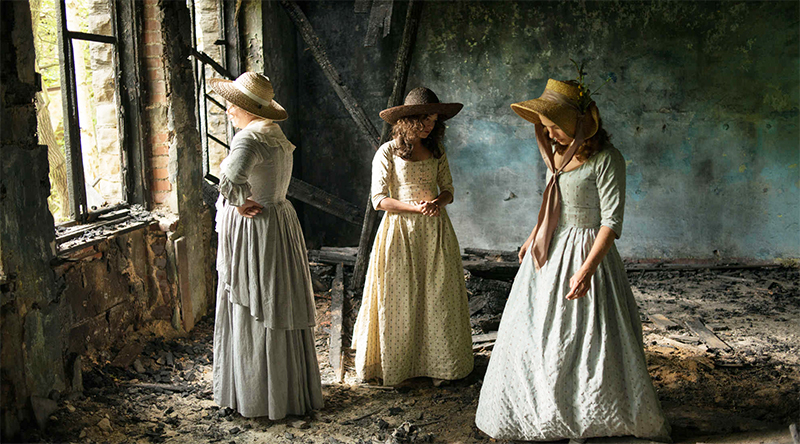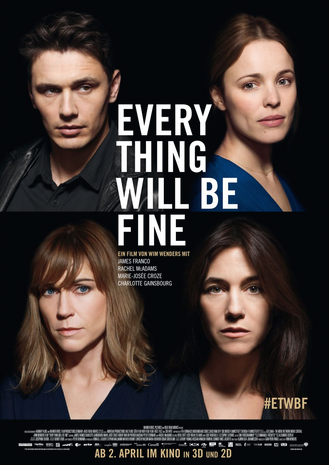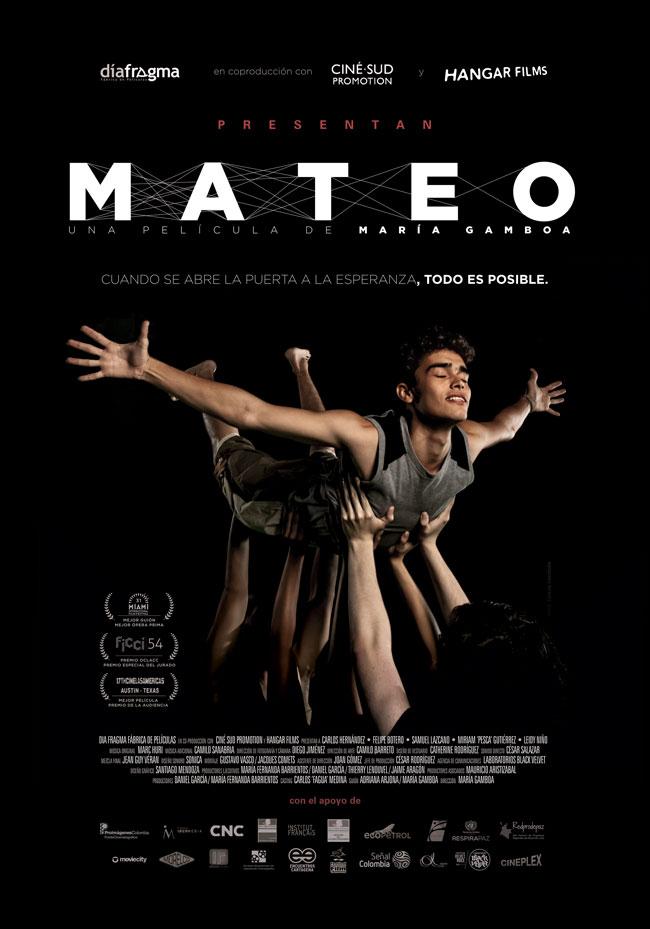 "...and that is why you should nominate us for Best Foreign Film at the Oscars."Our NYFF coverage continues with Nathaniel learning a 'don't procrastinate lesson'
"...and that is why you should nominate us for Best Foreign Film at the Oscars."Our NYFF coverage continues with Nathaniel learning a 'don't procrastinate lesson'
This will be brief though the movie is not. IMDb lists the running time of Beloved Sisters, a fine new costume drama, as 138 minutes. The version that screened this past week at NYFF was 170 minutes long or nearly three hours. I do not know which version AMPAS foreign language film committee will be screening but as soon as I find out I'll share. I do know this: a 170 minute long movie in which you can't read any of your notes (due to scribbling on the same line repeatedly in the dark) should be written up immediately and not left to swiss cheese memory.
Beloved Sisters is a true(ish) story about sisters Charlotte (Henriette Confurius) and Caroline (Hannah Herzprung) and the talented man they fall for (Florian Stetter as Friedrich Schiller). The sisters are the best of friends but for financial reasons they have to part; Their mother widowed, Caroline marries for money to help support her family. As the movie begins, Charlotte is now old enough to be shopped around town... excuse me "introduced into high society" as well. Though Charlotte is lovely and (mostly) obedient, she doesn't have the right temperament to acclimate to stuffy society events, aristocratic mores, and arranged marriages. Instead she wants to marry the penniless poet Schiller who will eventually become famous, hence the interest in making a movie about this at all over 225 years later. Her mother, in need of money, doesn't approve.

Soon married Caroline is also in love with Friedrich but, in stark contract to most love triangles, the sisters are happy to share him. One near-drowning which ends with Friedrich scandalously naked and warmed by the sisters sets this odd triangle on its two-decade course. Since history is not at all explicit about what went down between Schiller and the sisters he became so close to, there are many theories and Dominik Graf's film fills in the blanks with a kind of lush romanticism that wouldn't be out of place in a swoony romance novel albeit one without the bodice ripping salaciousness. The film is interested, though not heavily invested in the life of the mind and rather timid about sex actually. This doesn't feel like a misstep exactly since Charlotte's ideas of romance is naive and youthful and the character arcs largely involve the three of them accepting the compromises and difficulties of marriages and friendship.
Though many of the details of the film have slipped by me two weeks later (blame a month of constant film festivalling, not the movie itself) I still remember evocative production design from rich wallpaper to a the delapidated ruins of a family house, and the wonderfully complicit reading of letters directly to camera. Most of all I remember the first half (which flies by) when love is new and all consuming. Beloved Sisters feels more ordinary the longer it plays, unfortunately, but the first half has a charming youthful idealism and a firm grasp on illicit if modest thrills that come from soulmate devotion, and secretive infatuations like a Heavenly Creatures without the blood spattering psychosis.

Previous NYFF Reviews here. Oscar submission charts here.
16 Foreign Oscar Submissions Reviewed: Argentina, Australia, Belgium, Brazil, Canada, Cuba,France, Germany, Iceland, Latvia, Mauritania, Norway, Poland, Portugal, Sweden and Venezuela
 Friday, May 1, 2015 at 1:14PM
Friday, May 1, 2015 at 1:14PM  Lake Bell in "In a World…," which isn't about dubbing, but it's a great movie and I needed a picture here.
Lake Bell in "In a World…," which isn't about dubbing, but it's a great movie and I needed a picture here.










